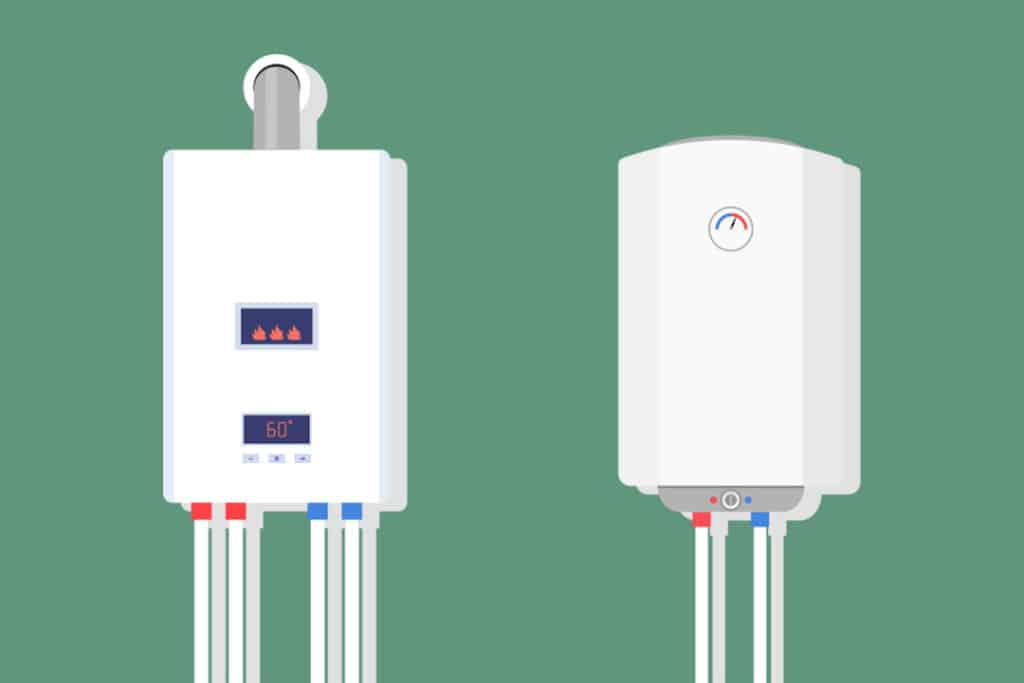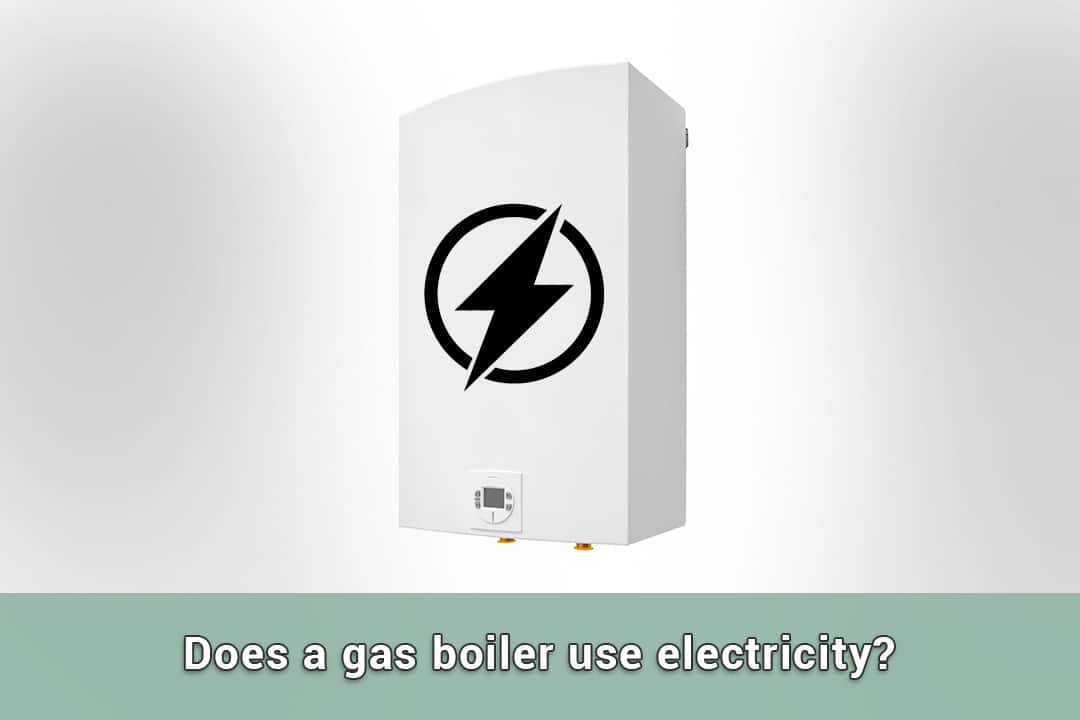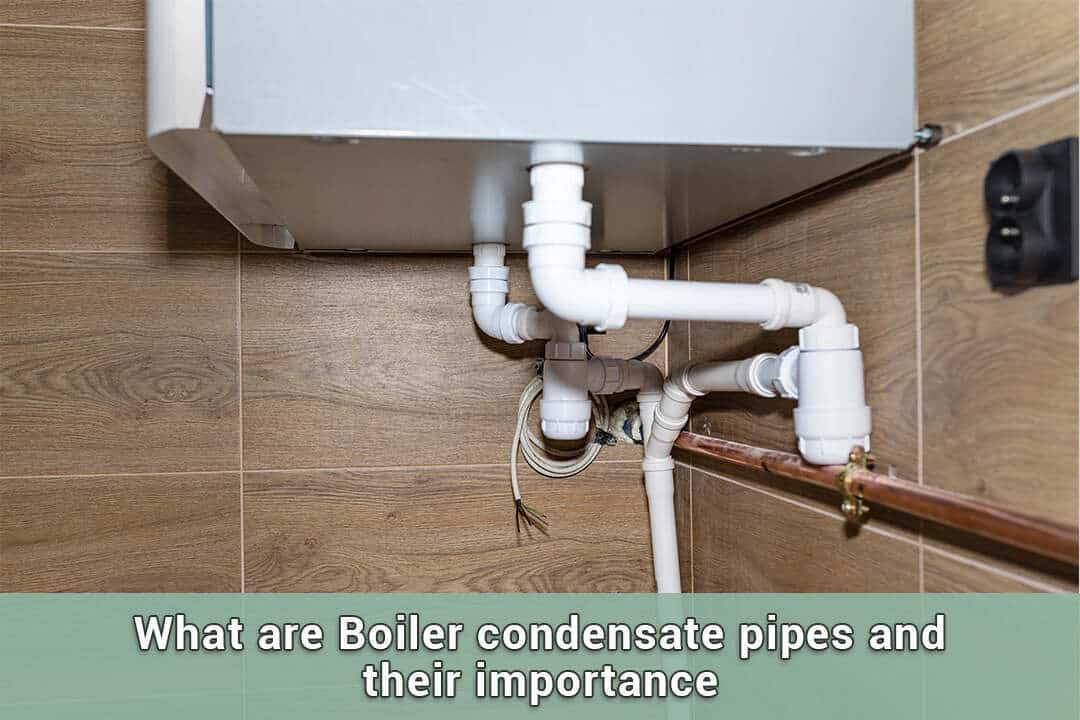Table of Contents
Electricity Requirement in Gas Boilers
Gas boilers are used to heat homes and provide hot water. They are good at making heat by burning natural gas or LPG. Some people might not know that gas boilers need a little electricity to work.
This piece will talk about how much electricity does a boiler uses and how they generate heat. We will look at how much power gas boilers usually use, the factors that affect how they are used, and electric boilers. We’ll also talk about the cool new features of modern gas boilers and give you upkeep tips to save power.
After reading this piece, you’ll know how much power a gas boiler uses and be able to make smart decisions about your heating system and how much energy you use.
How Gas Boilers Generate Heat
Natural gas or LPG is burned in combustion tanks of gas boilers to make heat. Heat exchanges move heat from burning fuel to water. In the central heating system, this hot water is used to heat radiators and underground heating systems.
The heat exchanger is an important part of a gas boiler. Its metal tubes or plates move heat from the gas that is burning to the water. The water’s temperature rises because it takes in heat from the heat exchanger.
At the same time, cold water from the mains enters the boiler and moves to the heat exchanger. Hot water for the home is made by mixing cold water with hot water from the heat exchanger. You can bathe, wash dishes, and do other things around the house in this hot water.
The Role of Electricity in Gas Boiler Operation
Gas boilers use gas to make heat, but some parts of them need electricity to work. The controls, the circulator pump, the starting system, and the electrical safety measures are some of these.
The starting system lights the gas on fire and makes a flame to begin the burning process. The buttons let homes change the temperature and electrically check on the system. The circulator pump in central heating systems moves hot water through pipes to radiators or underfloor heating systems. This process needs power.
The boiler fan is another important electric part. The fan pulls waste fumes out of the burning area, which keeps the boiler safe and working well. These parts use less electricity than gas boilers.
Analysing the Average Electricity Consumption of Gas Boilers
When it comes to power use, modern gas boiler designs put energy economy first. A small amount of electricity runs the parts of a gas boiler, but the total demand for electricity is very low.
How well a gas boiler uses energy relies on the type and the features it has. Modern technology lets makers make products that use less energy, which means they can heat and heat water while using less power.
Looking at how much power a gas boiler uses could help people save money, have less of an impact on the world, and make decisions about how to use energy. To run a gas boiler efficiently and save money, you need to know how to use its power in certain ways.
How Much Electricity does a Boiler Use?
Gas boilers use different amounts of electricity based on the type, how much heat they need, and their features. Keep in mind that it uses less electricity than most home equipment.
Most gas boilers use between 100 and 200 watts. 200 to 400 kWh of electricity are usually used each year. A gas boiler uses about the same amount of electricity each year as a small home device or a few light bulbs.
How much power you use depends on how much heating you need, how you use your home, and how efficient your boiler is. Electricity use should be compared to what the maker says and what the energy label says.
Electricity Usage | Average Consumption |
Gas Boiler Electricity Consumption | 100-200 watts (200-400 kWh annually) |
Factors Influencing the Electricity Usage of Gas Boilers
How much electricity a gas boiler uses depends on how efficient the boiler is, how big the property is, how much heating it needs, and how it is used for hot water and heating.
These days, condensing boilers use less electricity than they did in the past. Other heating control systems and smart thermostats can also change how much energy is used. It also changes how much heating is needed and how much electricity the boiler uses.
Maintain and service your car to get the most out of it and lower your energy bills and carbon emissions. Knowing about these things can help people use less electricity while still being comfortable.
Comparing Gas and Electric Boilers

Most home heating systems use either gas or electric boilers. Both provide heat and hot water, but they are very different.
The main difference is the type of fuel used. Gas boilers use natural gas or LPG to heat the water, while electric boilers use electricity. Fuel source affects energy efficiency, cost, installation complexity, carbon emissions, and space.
Gas boilers use less energy than electric ones because gas directly makes heat. In your area, if natural gas is cheaper than electricity, they have lower costs to run. Electric boilers are easier to set up and don’t release any carbon dioxide if they use electricity from renewable sources.
Gas or electric boilers are chosen based on the cost of energy, the availability of fuel, the impact on the environment, and the needs of the property. A professional can help you choose the best heating system for your home.
Efficiency and Cost Comparison
There are a few things you need to think about when comparing the cost and efficiency of gas and electric boilers. Gas boilers use little energy because they heat with direct gas combustion. Being efficient cuts down on carbon emissions and energy bills.
Since they turn electricity into heat, electric boilers use more power and cost more than gas boilers. Electric boilers are now more effective and efficient, which means that some homeowners may be able to use them.
Gas and electric boilers need service and maintenance once a year to work at their best. By servicing your boiler on a regular basis, you can find problems early and make it work as efficiently as possible, which saves you money and energy.
Compare the cost and efficiency of gas and electric boilers by looking at what your property needs, how easy it is to get energy, and how much it will cost to run in the long run. A heating engineer with a lot of experience can help you make a smart choice.
Pros and Cons of Gas vs. Electric Boilers
Each gas and electric boiler has its own pros and cons. Gas boilers are popular because they use little energy, are cheap, and can always get gas. They give off carbon emissions, but condensing boilers cut those emissions down.
Electric boilers that use renewable electricity don’t release any carbon into the air. They’re smaller and easier to put in place. Depending on how much electricity costs where you live, electric boilers may use more power and cost more than gas boilers.
When picking between gas and electric boilers, think about how much energy they use, how much they cost to run, how they affect the environment, and what your home needs. A heating engineer can help you compare the pros and cons of each option and pick the best one for your home.
Innovative Features of Modern Gas Boilers
Modern gas boilers have new features that make them work better and use less energy. One important feature is that it works with smart thermostats. By controlling and keeping an eye on their heating systems, remote thermostats help people use energy more efficiently and throw away less.
Another new thing is that modern boilers use less energy. To get the most energy efficiency, they use advanced heat exchangers and keep heat loss to a minimum. This lets the most energy get to the heating system, which cuts down on costs and energy use.
With these new features, gas boilers give homeowners more control over their comfort, heating systems and how much energy they use. These new ideas encourage green living and lessen the damage we do to the environment.
Smart Controls and Electricity Usage
Gas boilers and other heating systems are changed by smart thermostats. These innovative devices allow homeowners to remotely control and monitor their heating systems.
Smart thermostats let homeowners set schedules, adjust temperatures, and control their heating systems via mobile apps. This control reduces energy use by only running the heating system when needed. When away from home, homeowners can programme the heating system to turn off or lower the temperature, saving energy.
Energy-Saving Tips for Gas Boiler Users
Gas boiler owners can use energy-saving tips to maximise energy use and reduce electricity use. These tips can lower energy bills, reduce environmental impact, and improve heating system efficiency. Here are some energy-saving tips for gas boiler users:
- Set the thermostat to an appropriate temperature and avoid overheating the house.
- Install a programmable or smart thermostat to control the heating system effectively.
- Ensure proper insulation of the property, including windows, doors, and walls, to prevent heat loss.
- Consider upgrading to a condensing boiler, which is highly energy-efficient and can significantly reduce energy consumption.
By following these energy-saving tips, homeowners can optimise the electricity usage of their gas boilers, reduce energy waste, and achieve cost savings on their energy bills.
Preparing Your Gas Boiler for Power Interruptions
To prepare your gas boiler for power interruptions, it’s important to have an emergency plan in place. Here are some steps you can take:
- When the power goes out, use a generator to power the gas boiler’s most important parts.
- Carbon monoxide monitors that run on batteries can keep your home safe when the power goes out.
- To get your gas boiler going again after the power goes out, read the manufacturer’s directions. To keep the boiler going safely, you must follow these suggestions.
- If you need help with your gas boiler during a power outage, keep the number of a trained heating tech handy.
By doing these things, you may be able to keep your gas boiler safe and your home warm when the power goes out.
Conclusion
For energy savings, you need to know how to use electricity in a gas boiler. Gas boilers use power, which changes how much is used. To be as efficient as possible, you need to look at how much power is used, compare gas and electric boilers, and use methods that save energy.
Smart settings make it possible to watch and control power in new ways. For things to work smoothly, they need to be maintained regularly and be ready for power outages. Knowing about the different types of boilers and electricity helps you pick heating options that are both green and cost-effective. Stay updated and get things done!
People Also Ask
Does gas boiler use electricity?
Yes, all gas boilers need some power for the controls, the water pump and the starting system. Gas boilers can’t work or be managed without power.
How can I reduce the electricity usage of my gas boiler?
To reduce the electricity usage of your gas boiler, you can:
- Set your thermostat to an appropriate temperature.
- Install a programmable or smart thermostat to optimise energy usage.
- Schedule regular servicing to ensure optimal efficiency.
- Insulate your property to minimise heat loss and improve energy efficiency.
Can power outages affect my gas boiler’s performance?
Gas boilers need electricity to work, so when the power goes out, they might not work as well. Gas boilers usually don’t work when the power goes out, but some newer models have backup power sources.
Is it worth switching from a gas to an electric boiler?
You should think about whether to switch from a gas boiler to an electric boiler based on energy costs, fuel supply, and the needs of your home. A cost-benefit analysis that looks at installation, use, and environmental factors could help people make a decision.
How do smart thermostats influence gas boiler electricity consumption?
Smart thermostats may help gas boilers use less energy by letting you control and watch heating systems from afar. This makes the best use of gas boiler power by cutting down on wasted energy.
Recent Blogs
FREE ELIGIBILITY CHECKER








